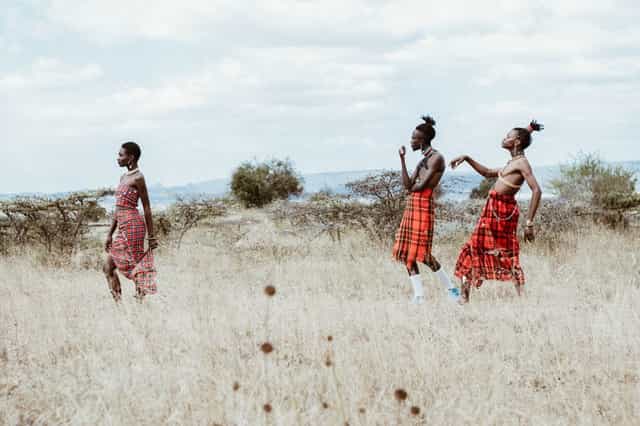To what extent is the writing of African history Africanist
History
is the study of events which happened in the past. Africans history was
ignored, instead it was asserted that, there was only the history of Europeans
in Africa. “Africans constituted a blank darkness and darkness was no suitable
subject of history.”[1]
Africans history was written in a Euro centric way, this colonial
historiography presented the Europeans as the main actor in any significant
transformation of the African continent since its discovery.
It
would have been impossible a generation or so ago to write the history of
Africanist history. There was simply nothing to talk about. Institutions which
were allegedly concerned with the teaching of Africanist history had very
little to profess.[2]
Liberal
historiography sought to help Africans recover and reclaim their own histories
in consonance with the attainment of political independence into distinguish
the history of Europeans in Africa from the history of Africans people. So the
writing of African history Africanist in contemporary environment can be
discussed below.
In writing African history, the
Africanist historians, methodologically they developed the field of oral
history and appropriated and extended the range of questions to be asked
concerning social change by social anthropologists. The favorite theme of the
period was African resistance and its opposite, the dyad of resistance and
oppression.[3]
The contemporary African history
researched and written by Africans themselves. Example, research on Samori
Toure was done by Yves Person, the Majimaji war of Tanganyika was led by John
Illife and Gilbert Gwassa, on Chimurenga war in Southern Rhodesia by T.O
Ranger, and on the Herero Nama revolt in Namibia by Helmut Bley.[4] At
least this was the Africans History.
The writing of African history
Africanist thought to explicate the explanatory value of African History as a
discipline, as a reason, the Dar es salaam school of history was created under
T.O Ranger. The reason for this school was to give Tanzanians its national
History, also to engage in debates relating to building of Ujamaa socialism.
Also debates were conducted, between the liberal and the radical. The radicals
traced the history of African poverty in the global capitalism. (NewBury
1998;304)
Currently Africans history is
written to favor the Africans themselves. The new departments of history
established the teaching of African
rather than Europeans history at the core of curriculum with a full commitment
of learning through an African faculty.
The acceptance of oral traditions in
writing history, input academic history in contact with the wider society.
“This input brought academic history in contact with the
wider society and help to build links with the academy and the public over a
period of twenty years before funds of universities dried up.”[5]
So
the input of oral traditions contemporary have a great contribution in getting
the African history.
The contemporary African history is
written about Africans history. The studies of the Atlantic slave trade on
Africans economy, demographics and development, comparative slavery in East
Africa coast and in the new world and the slow death of slavery in 20th
century Africa. The historical study of
Africans religion, Christian missionary, independent Africans Christians
and Africans traditional religions. All pre colonial Africa lived and
controlled their environment.[6]
The contemporary Africans history
discuss the global agenda of women role in economic development, something
which was less important in Euro centric way of writing history. Beginning with
Africa as a predominantly agricultural continent where between 65 and 80
percent of Africans women were engaged in cultivating food for their families.
The centrarity of agriculture influences the control of land and labor by kin
groups and clans, usually represented by male political and religious
leadership. Africa had a high incidence of matrilineal descent, a social system
that placed woman and her female relations at the centre of kinship and family.
Though male clan leaders influenced the arrangement of families through marriage.
Women used a
variety of roots to exercise authority.
Some times they adviced male rulers and served as co-rulers regents.
Africans historiography has moved
from the institutional to the economic then the social and now cultural
history. The insight of history, political economy, historical anthropology,
literary studies and other forms of social sciences imagination, the
construction of identity, the colonization of
consciousness colonial texts and transcripts as social practice.
“Experience identity and self
expression which link the glories of
past independence , the miseries of domination and poverty and hopes a fully
autonomous future.”[7]
In general beyond the historian’s
guild the twentieth century has witnessed the production of popular historical literature in Africa,
produced locally, often in non- western languages by individuals and collectivities believing
in their past , giving themselves their own histories which tell of those pasts
, and which have meaning , authority and significance for the local populations
.The recognition of this popular work
compels a movement from narrow understandings about the nature of history, historical
evidence , and what should constitute other peoples’ histories. [
Cohen 1994 ] One is led to multiple sites of historical telling: the song,
praise poetry, the allegory in the folktale , the silences in the memory
of the past, for example. There has been a continuous production of the oral
histories of Africa , captured in the
rendition that ” we live our lives as a tale that is told ” [ Hofmeyr 1994] .
At the same time, the advent of literacy has led to the proliferation of the realm of the written world. Vernacular
authors have sought to give their peoples a history. The first generation of
Africa’s modern men in the twentieth century appropriated the knowledge of the
organic intellectuals of the previous century by bridging the gap between
orality and literacy through publication. The foundations for this genre were
laid early in the century by Apolo Kagwa in eastern Africa and Samuel Johnson in west Africa.[ Kiwanuka
1970, Ajayi 1998 ] They collected the oral traditions of their clans and
kingdoms and in so doing created a master narrative for the Baganda and the
Yoruba. In terms of method they occupied
a fairly modern terrain. They interviewed knowledgeable informants, custodians
of shrines , court historians and keepers of clan lores. Fifty years later the
academy—Jan Vansina in the 1950s and B. A. Ogot in the 1960s—travelled along
the same path, interviewing individual encyclopaedic informants, holding formal
sessions with court historians and clan elders, as well as reading the
missionary and colonial archives to arrive at a history of theKuba or the Luo
that accommodated every major lineage, or left enough room for the malleable
accommodation of more recent incorporations into the putative genealogy of all
Kuba or all Luo. [Cohen & Odhiambo 1987 ] Johnson’s work has spawned a
century of Yoruba Historiography .[ Falola 1991 ] Kagwa’s work has influenced
western scholarship in the fields of
history , anthropology and religion in
the region for a century, and spawned a
specific Ganda historiography that continues to thrive. [ Reid 1997 ] Critiques
of these canons have emerged with revisionist interpretations. In the Great
Lakes areas historiography has moved from the original diffusionist conquest
model— the Hamitic myth— into a concern with
ecological change ,and the contextualisation of struggles over authority
and wealth. [ Schoenbrun 1999,Willis
1999].[8]
written by;
MAKOBA DAUD
|
KISUKA SOPHIA
|
MKINDI AMINA G
|
KITALULA ABUBAKARI
|
REFERENCE
E. Odhiambo (1977) Re
Introducing People Without Historiographies. Rice University.
P.Curtin (1969). The
Atlantic Slave Trade. University of Winsconsin Press.
H. Roper (1966). The
rise of Christian Europe. Themes and Hudson
B.Ogot, Three
Decades of Historical Studies in East Africa 1949 – 1977, The Pan
Africanist
P.cooper (1994). Reward
Paper Back. Pocket books.
[1]
H. Roper (1966). The rise of Christian Europe. Themes and Hudson
[2]
B.Ogot, Three Decades of Historical Studies in East Africa 1949 – 1977, The Pan
Africanist
[3]
P.cooper (1994). Reward Paper Back. Pocket books.
[4]
E. Odhiambo (1977) Re Introducing People Without Historiographies. Rice
University.
[5]
E. Odhiambo (1977) Re Introducing People Without Historiographies. Rice
University.
[6]
P.Curtin (1969). The Atlantic Slave Trade. University of Winsconsin Press.
[7]
E. Odhiambo (1977) Re Introducing People Without Historiographies. Rice
University.
[8]
E. Odhiambo (1977) Re Introducing People Without Historiographies. Rice
University.







